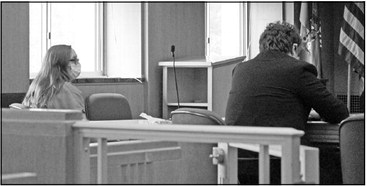Heuer sentenced for role in overdose death


Breana Heuer, 23, Cadott, appeared in court for a sentencing hearing May 22.
Heuer faced one count of First Degree Recklessly Endangering Safety, as a Party...


Breana Heuer, 23, Cadott, appeared in court for a sentencing hearing May 22.
Heuer faced one count of First Degree Recklessly Endangering Safety, as a Party...